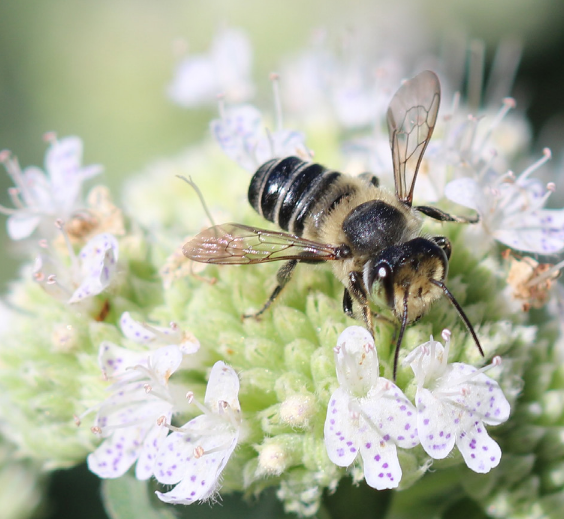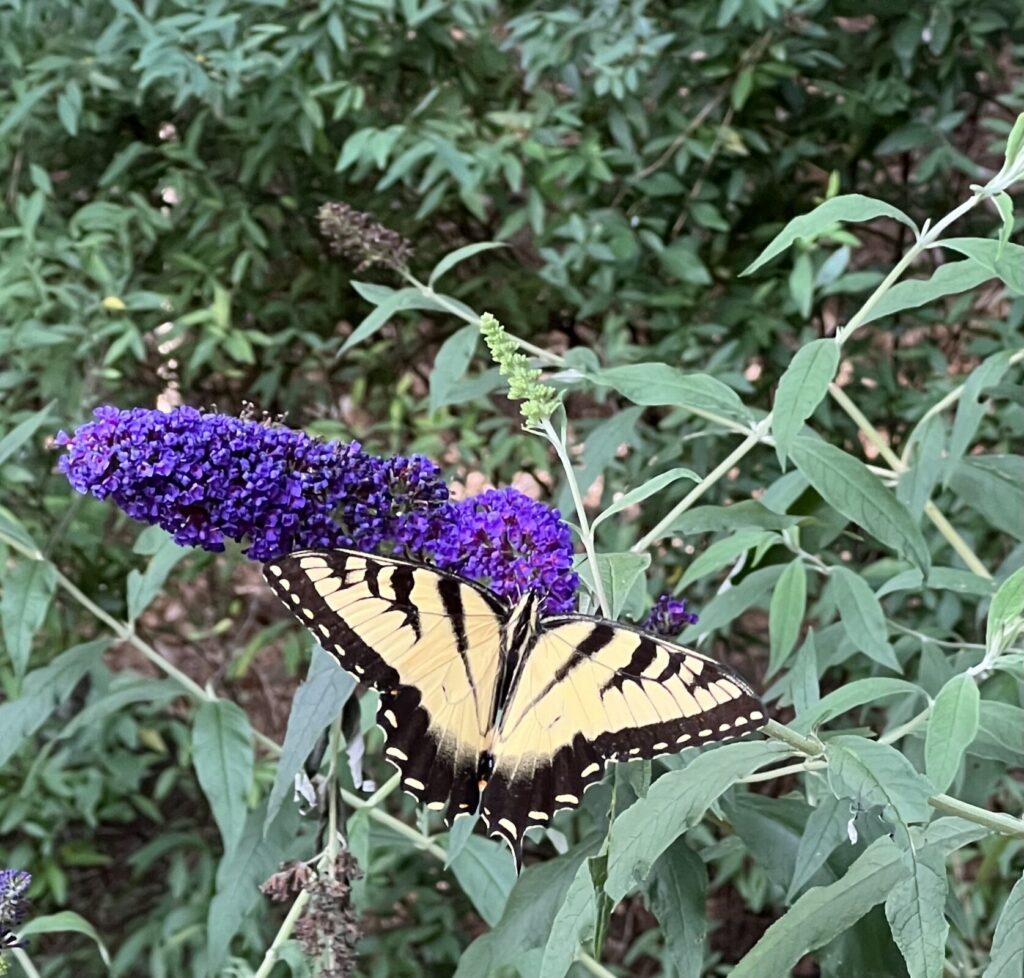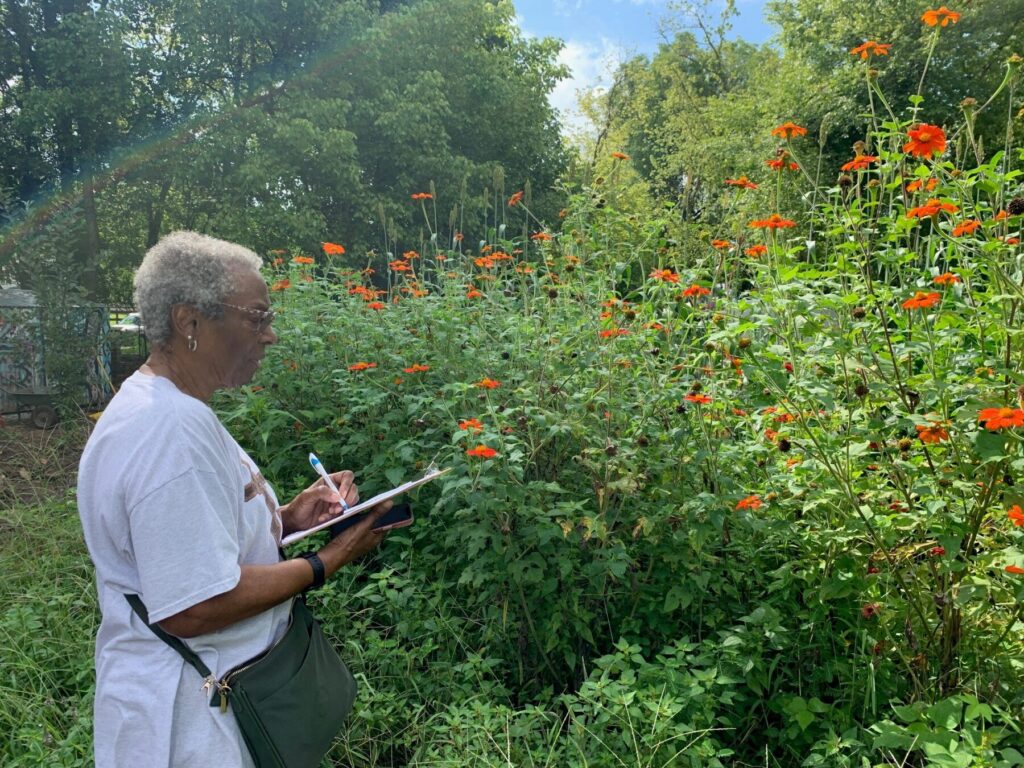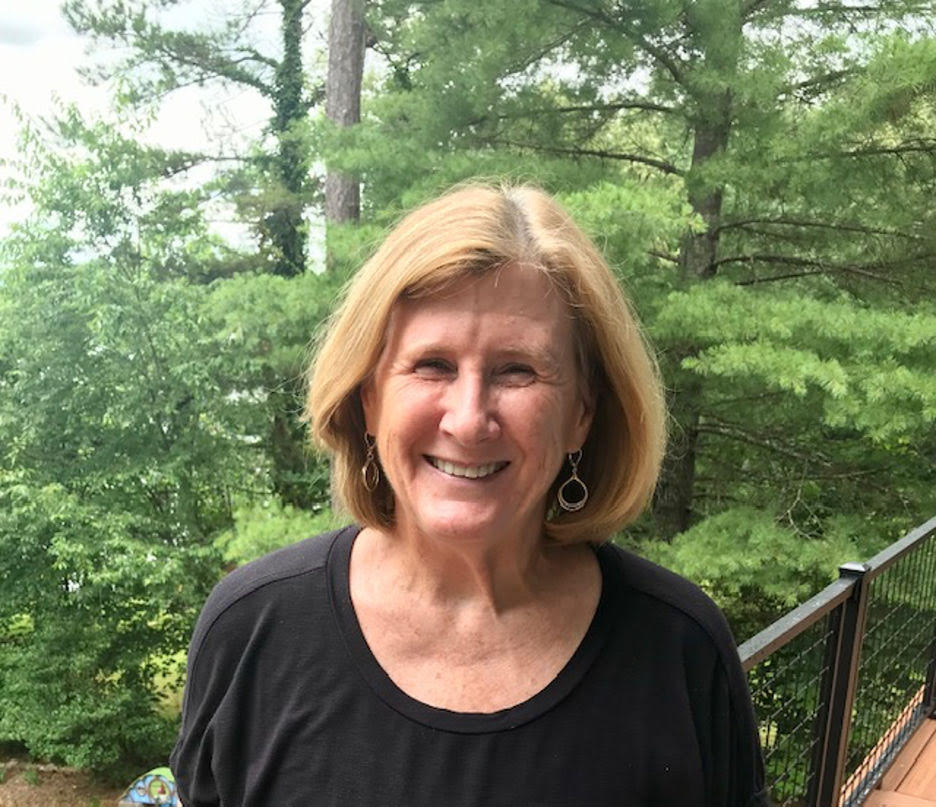by Anne Wiskind, Fulton County Master Gardener Extension Volunteer
This article is part of Garden Buzz, a series from Appen Media and the North Fulton Master Gardeners, where rotating columnists explore horticulture topics like herbs, insects, and wildlife conservation. Find all Garden Buzz articles here.
The 2025 Great Southeast Pollinator Census (GSePC) is scheduled for August 22-23, 2025, and we need your help!

The GSEPC was developed by Becky Griffin, the UGA Community and School Garden Coordinator, after she noted the need for increased knowledge among Georgia gardeners about insect ecosystems and pollinators. Her goals were to create sustainable pollinator habitats, increase entomological literacy, and generate useful data about Georgia’s pollinators. She started with a pilot project of 50 gardens in 2017 and expanded to all of Georgia in 2019. Now open to residents of North Carolina, South Carolina, Florida and Alabama, as well as Georgia, it is also an important STEM activity in public schools and supported by numerous businesses.
Three-fourths of the world’s flowering plants and about 35 percent of the world’s food crops depend on animal pollinators to reproduce. More than 3,500 species of native bees in North America help increase crop yields. Some scientists estimate that one out of every three bites of food we eat exists because of animal pollinators like bees, butterflies, moths, birds, bats, beetles and other insects.


Habitat loss, disease, parasites and environmental contaminants have contributed to the loss of pollinators. It is in everyone’s interest to provide sustainable habitats so pollinators can find the right quantity and quality of food they need to survive.
The data generated by the GSePC helps determine the economic value of pollination. This is very important as agriculture is the top economic sector in Georgia. Growers also use the data to determine which pollinators are in their counties to make educated decisions on pest and pollinator management. City and county planners use the information to create thriving landscapes, and conservationists use the data to determine the impact of their pollinator plantings.
How to Participate in the Census
It is easy for anyone to participate in the Census, and all materials are available at the GSePC website. Participants simply pick a pollinator plant and count the number of insect visits to that plant in a 15-minute window. The insects are divided into 8 categories: bumble bees, carpenter bees, honeybees, small bees, wasps, flies, butterflies/moths and others (beetles, lady bugs, dragonflies, lacewings, etc.). Participants load their tallies onto the GSePC website.
A pollinator plant is any native or non-native plant blooming during the census that shows insect activity. Common pollinator plants include black-eyed Susan, butterfly milkweed, blue giant hyssop, Raydon’s favorite aster, purple coneflower, dwarf tickseed and catmint.
Pollinator Census Events in Fulton County
This year, UGA Extension Fulton County is hosting GSePC events at five locations on Saturday, August 23rd.
Lost Corner Preserve
7300 Brandon Mill Rd, NW Sandy Springs, GA 30328
10 am – 2 pm
Autrey Mill Nature Preserve
9770 Autrey Mill Rd, Johns Creek, GA 30322
10 am – 12 pm
Little Diggers Booth at Sandy Springs Farmers Market
1 Galambos Way, Sandy Springs, GA 30328
8:30 am – 12 pm
Chastain Park Native Plant Garden
4001 Powers Ferry Rd, NW, Atlanta, GA 30342
9 am – 12 pm
GROWL Garden at Camp Truitt 4-H Education Center
4300 Herschel Road, College Park, GA 30337
10 am – 1 pm
These locations will have everything you need to participate in the Census, including counting sheets, insect ID guides as well as additional information about pollinators and pollinator gardens. Master Gardeners will be available at each site to guide you through everything you need to know. They will even collect your count sheets and upload your data to the GSEPC website!

Learn more about the 2025 Great Southeast Pollinator Census on Tuesday, August 12, at 7:00 p.m., featuring Becky Griffin, UGA Extension’s Pollinator Census National Coordinator. Becky will share insights about pollinator ecology and how everyone can make a difference and contribute to the 2025 Great Southeast Pollinator Census. You can register for this “how-to” webinar here.
Keep in mind you can also do this in your own backyard. So, let’s all embrace our inner BEE-ing and join the Great Southeast Pollinator Census.
Happy Gardening!
Learn More
- Great Southeast Pollinator Census
- The Importance of Pollinators (USDA)
- Selecting Trees and Shrubs as a Resource for Pollinators (UGA Extension)
About the Author

This week’s “Garden Buzz” guest columnist is Anne Wiskind, a Master Gardener who completed her Fulton County Master Gardener curriculum in April 2024. She is a life-long gardener with an active interest in ecological gardening and encouraging biological diversity.